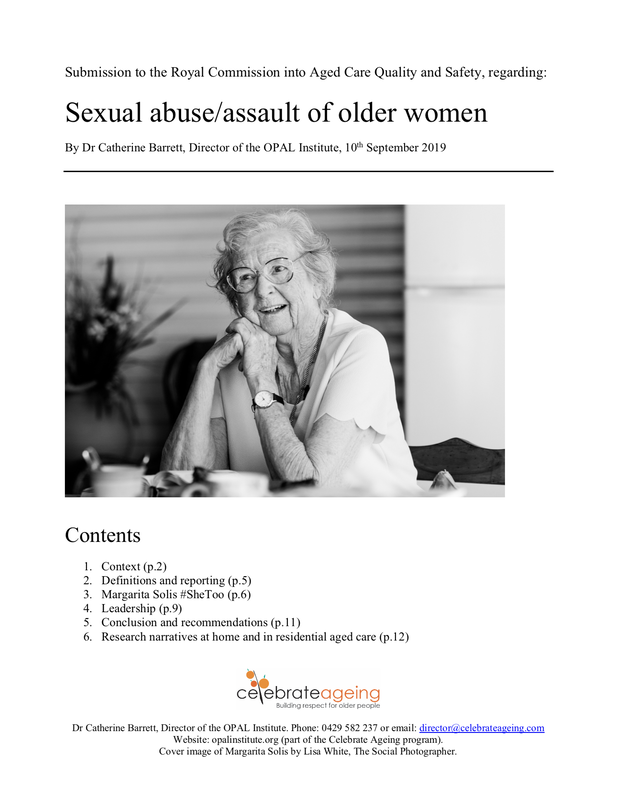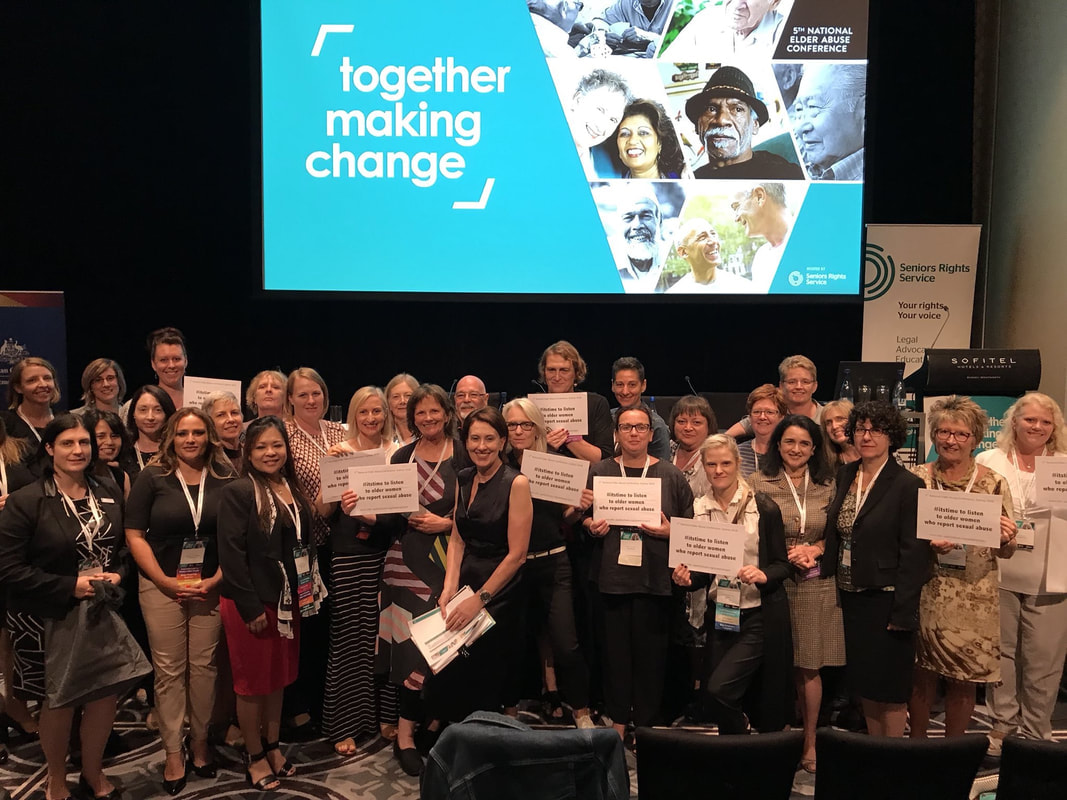Reports & resources
The small body of evidence on the sexual abuse of older women in Australia will be shared on this page. We hope over time this section of the website will grow.
The Audacity of E. Jean Carrol
This article by Jessica Bennett provides a very insightful critique of older women, ageism, power and sexual assault (here)
Compass
Compass is a national website navigating elder abuse in Australia. Compass aims to simplify the process of connecting people to services and information on tackling elder abuse. The Compass Knowledge Hub includes a number of resources on sexual assault - click on the following link and then in the search bar type in 'sexual assault'. Link: https://www.compass.info/
Royal Commission into Quality and Safety in Aged Care
The Royal Commission is calling for submissions and we have written one on sexual abuse/assault of older women. Please click the link here or image below.
The Monster Myth
The difference between sexual abuse and sexual assault is lies in the relationship between older women and the perpetrator. The term sexual abuse generally refers to sexual violence perpetrated by a family member or known service providers. Sexual assault (rape) by a stranger is much less common. This point was articulated powerfully in a recent article by Tom Meagher and is such important reading for anyone working to prevent sexual abuse of older women.
Videos - National Elder Abuse Conference 2018
Special thanks to Senior's Rights Service, New South Wales for providing the video of this one hour panel on Preventing The Sexual Abuse of Older Women from the National Elder Abuse Conference 2018. You can watch the video and an interview with Ellen Fanning below.
Norma's project
Norma's Project is Australia's first project focusing on primary prevention of the sexual assault of older women. Interviews and surveys involved over 95 people and documented 65 stories about the sexual assault of older women. The project was funded by the Australian Department of Social Services and conducted by the ARCSHS at La Trobe University in partnership with the National Ageing Research Institute; the University of Melbourne, Alzheimer’s Australia and the Council on the Ageing, Victoria. Resources included:
Prevalence
Given the silence surrounding
1. Elder Abuse in Community Settings: This report describes the review of 52 studies from 28 countries to report on the prevalence and types of Elder Abuse. The pooled prevalence rate for overall elder abuse was 15·7%. The pooled prevalence estimate was 11·6% for psychological abuse, 6·8% for financial abuse, 4·2% for neglect, 2·6% for physical abuse, and 0·9% for sexual abuse.
1. Elder Abuse in Community Settings: This report describes the review of 52 studies from 28 countries to report on the prevalence and types of Elder Abuse. The pooled prevalence rate for overall elder abuse was 15·7%. The pooled prevalence estimate was 11·6% for psychological abuse, 6·8% for financial abuse, 4·2% for neglect, 2·6% for physical abuse, and 0·9% for sexual abuse.
Older women's right to be safe at home and in care
This project involved interviews and a survey of aged care service providers in Victoria to document their strategies for preventing the sexual assault of older women. Data on 'good practice' formed the basis of a resource for the education of service providers about real strategies for change. The project was conducted by the Council on the Ageing (COTA) Victoria and the Australian Research Centre in Sex, Health and Society at La Trobe University and was funded by the Victorian Women's Benevolent Trust. Resources included:
Working with survivors
This looks like a useful from the USA - tools for advocates who are working with older survivors of sexual abuse. It includes a report and video. Link here
Transgender Women
There is growing recognition about the ways in which trans women experience sexual abuse. Loree Cook-Daniels and Michael Munson from the TransGender Ageing Network in the USA have published a paper on their research.
Wellbeing & Safety - body mapping
This small pilot study explored ways of opening up conversations with older women about sexual assault. The pilot was initiated in response to feedback that older women who experience sexual assault by an intimate partner or family member - may not use the term 'sexual assault' to describe their experiences. The pilot opened up conversations about sexual wellbeing and safety that included sexual assault. It highlighted a need to create safe spaces for older women to share their experiences. A body mapping technique used also provided an opportunity to engage older women and produce narratives that are compelling. See report here.
SE CASA
The South East Centre Against Sexual Assault has developed a number of resources relating to older people who have experienced sexual assault. You can access them by clicking here


